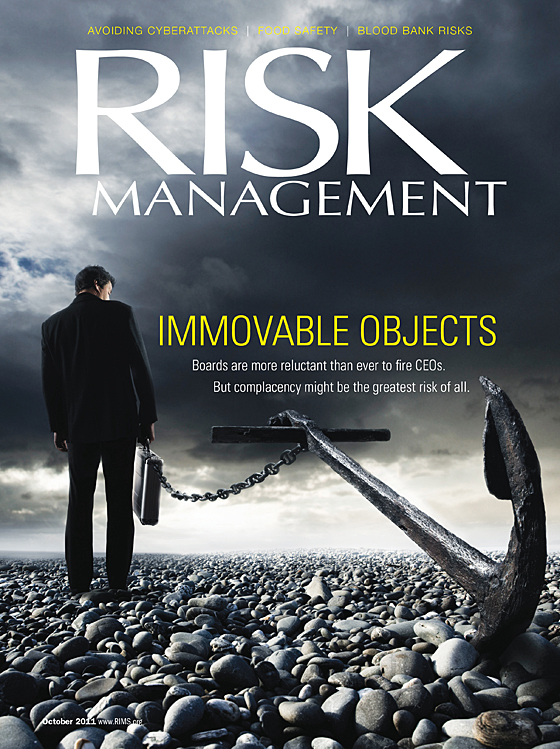Reputational risk is often overlooked and underestimated, but it may be the most potentially devastating threat to a company today. One only needs to look at the recent trials and tribulations of firms like BP, Toyota or Sony to see the impact that a scandal can have on public perception of a company and its overall revenue.
In fact in a session at RIMS 2011 Vancouver, entitled “Reputational Harm: Pushing the Envelope,” John Eltham of Miller Insurance Services, Kieron Russell of Lloyd’s syndicate RJ Kiln and Co. and Angela Matherly of Synder’s-Lance, Inc. pointed out that since the 1950s intangible assets like reputation have steadily become more important than even the tangible products that a company sells. Put simply, “reputation drives business results,” said Eltham. In a case like Toyota, while their recent recalls may have seemed to be strictly a product issue it was actually intangibles like bad governance and lack of citizenship in their awkward and slow response to the issues that were the keys to their damaged reputation.
Given that reputation is so important to the entire company, Matherly pointed out that it is a perfect risk for a ERM framework. Since the whole company can be affected, the whole company needs to help manage the risk. “Do sweat the details,” she said.
This involves making sure that crisis management and crisis communication plans are in place, PR firms are engaged before an issue occurs, executives and spokespeople recieve media training and that a business continuity plan is in place.
Companies can choose do it themselves or they can turn to an insurer to help transfer the risk. Either way, successful mitigation is all about “maximizing the ‘Golden Hour’,” said Russell–the time between when the event occurs and when the media gets a hold of it. (And these days, that “Golden Hour” can sometimes be more like “Golden Minutes.
” ) By considering this important time period, which means being prepared beforehand, companies can the reduce the time it takes to regain whatever revenue might be lost because of a reputational event.
It may take a lot of good deeds to make up for a bad event, but considering the stakes, it seems that a sound reputational risk management program is essential to making sure that you will need fewer of those good deeds to make things right.

